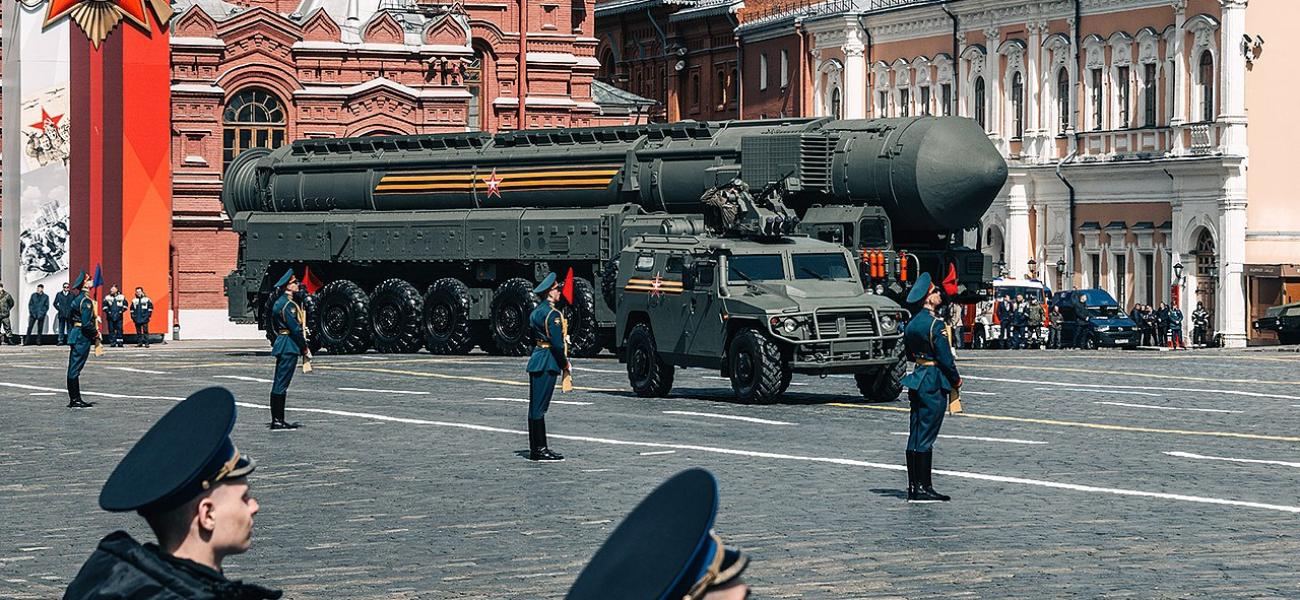Simon Saradzhyan

It might be difficult to fathom, but there was a time when Vladimir Putin supported the elimination of nuclear weapons, at least in public. Asked in 2009 about Japan’s efforts to have the world “completely give up nuclear arms,” Putin said: “I approve of them. I think we should work toward universal and total nuclear disarmament.” Fast-forward to 2022, however, and not a fortnight goes by, it seems, without Putin or his key aides rattling Russia’s several thousand nuclear sabers. Russia’s autocratic ruler is trying to intimidate Kyiv and its Western allies into accepting his terms for ending the war he’s launched, which include annexing parts of Ukraine and subjugating the rest of the country to Moscow’s diktat. The collective West is right to take these threats seriously, but its efforts to dissuade Putin from exercising the nuclear option lack a critical component—pro-active involvement by the leaders of “the Rest.”
The Kremlin’s latest round of nuclear saber-rattling began Sept. 21 when Putin warned that, should NATO countries use weapons of mass destruction against Russia, “we will certainly make use of all weapon systems available to us.” “This is not a bluff,” he added in an address meant to announce his decision of “a partial mobilization” and to endorse sham referenda in Russian-occupied parts of Ukraine. It follows from Putin’s statement that Russia’s nuclear umbrella will be extended to cover the occupied territories, which could be annexed by Moscow as soon as Sept. 30. And if Putin’s warning was not explicit enough, his increasingly hawkish lieutenant at Russia’s Security Council, Dmitry Medvedev, stressed the next day that Russia could use its strategic nuclear forces to defend the newly annexed lands.
Most of the Russian leadership’s saber-rattling since the beginning of Russia’s invasion of Ukraine on Feb. 24 adheres to the largely defensive language on the use of nuclear weapons in Russia’s strategic documents, and Putin’s Sept. 21 announcement is no exception. Both Russia’s 2014 Military Doctrine and its 2020 policy on nuclear deterrence declare that Russia reserves “the right to use nuclear weapons in response to the use of nuclear and other types of weapons of mass destruction against it and/or its allies, as well as in the event of aggression against the Russian Federation with the use of conventional weapons when the very existence of the state is in jeopardy.” Neither document specifies what such an existential threat could be, but one would think that Ukraine retaking its own lands in, for instance, the Kherson or Zaporizhzhia regions, cannot possibly constitute a threat to “the very existence” of the Russian state. One would also think (especially if one is a realist) that Putin would see the costs of a nuclear response to such recapture of territory as exceeding the benefits.
But in this war Putin has already demonstrated not only that his perception of anticipated costs and benefits differs significantly from those of outside observers (including yours truly) but that, when events on the ground prove his initial cost-benefit analysis erroneous, he chooses to double down rather than cut his losses. Armed with this knowledge—and with the understanding that preliminary war plans typically do not survive the actual war—decision-makers in Kyiv and Western capitals are, therefore, right to take Putin’s nuclear saber-rattling seriously. They know he may eventually resort to nuclear weapons, if cornered and desperate, no matter what Russia’s official military doctrine says. The U.S. and its allies are acting on this knowledge to impact Putin’s cost-benefit analysis on nuclear weapons use and to improve intelligence on his decision-making, but also to prepare for the possibility that their preventive efforts could fail.
In my view, the preventive parts of these efforts may have a greater, if not game-changing, impact on Putin’s decision-making if they are pursued by the two great powers of the Rest—China and India—which have both the motivation and the capacity to convince Putin to refrain from using nuclear weapons. It is not in the interest of either China or India to have the war in Ukraine take a nuclear turn, if only because it would make other countries in their respective regions seek what Ukraine gave up in the 1990s: nuclear weapons. Both Beijing and New Delhi have unmatched capacity to reason with Moscow, given that trade between their countries (mostly with China, but also to some extent with India) has become a lifeline for the Russian economy in the wake of Western sanctions, as well as the value Russia places on its strategic partnerships with both countries, and Xi’s and Modi’s good relations with Putin. Both Xi and Modi have already raised questions and expressed concern to Putin regarding his war in Ukraine. Both should act now, per their responsibilities as leaders of the great powers of "the Rest", in coordination, or independently, to affect Putin’s decision-making so that no nuclear mushroom grows on the wheat fields of Ukraine (or elsewhere) even if prospects for ending Russia’s conventional war against Ukraine remain dim.
No comments:
Post a Comment